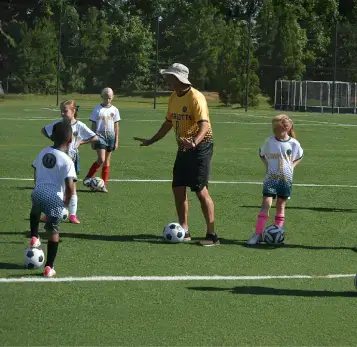CRFC
NEWSLETTERS
NEWSLETTERS FOR OUR LATEST EVENTS
The Power of Asking, "What Can I Do Better for You?"
The question, “What can I do better for you?” embodies a powerful mindset that can transform any learning environment, team dynamic, or relationship. This simple yet profound question fosters a culture of continuous improvement, mutual respect, and psychological safety.

Encouraging Vulnerability and Growth
Asking, “What can I do better for you?” requires vulnerability. It means being open to feedback, even when it’s hard to hear. This openness signals to others that you value their perspective and are committed to growing and improving. When leaders, teachers, or coaches model this behavior, they encourage others to adopt a similar mindset, creating an environment where everyone is focused on continuous learning and improvement.
Building Psychological Safety
Research shows that psychological safety – the belief that you won’t be punished or humiliated for speaking up with ideas, questions, concerns, or mistakes – is a key predictor of a group’s success. By regularly asking for feedback, leaders can build a safe space where individuals feel comfortable sharing their thoughts and suggestions. This safety net allows for more honest communication, leading to better problem-solving and innovation.


Enhancing Trust and Relationships
When you ask someone, “What can I do better for you?” you show that you care about their experience and value their input. This question can strengthen relationships by building trust and mutual respect. People are more likely to engage and perform their best when they feel heard and valued.
Promoting a Learning Culture
In any organization or team, fostering a culture of learning is crucial for long-term success. By demonstrating a willingness to learn and improve, leaders set a powerful example. This behavior encourages others to take risks, own their mistakes, and seek out growth opportunities. A learning culture thrives on the collective effort of individuals committed to bettering themselves and each other.

Practical Steps to
Implement This Mindset
Ask Regularly
Make it a habit to ask this question in meetings, one-on-ones, and informal interactions. Consistency reinforces your commitment to improvement.
Listen Actively
When someone provides feedback, listen without interrupting or becoming defensive. Show that you genuinely want to understand their perspective.
Act on Feedback
Demonstrate that you value the feedback by taking concrete actions based on the input you receive. This shows that you are serious about making improvements.
Follow-up
Check back with the person to see if the changes you made have had a positive impact. This continuous loop of feedback and improvement strengthens the trust and effectiveness of the relationship.

Conclusion
The question, “What can I do better for you?” is more than just a query; it’s a powerful tool for fostering a culture of growth, safety, and mutual respect. By embracing this mindset, we can create environments where everyone feels valued, empowered, and motivated to reach their full potential.
NEWSLETTER
GET IN TOUCH WITH US

